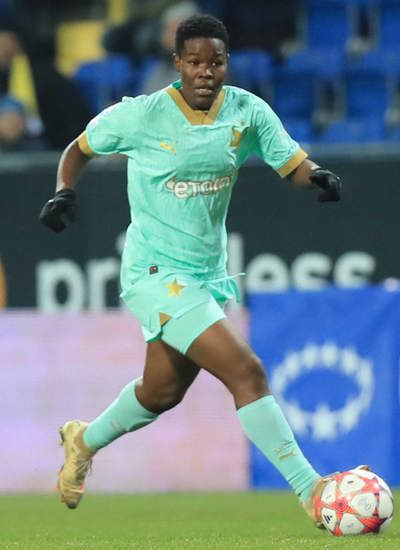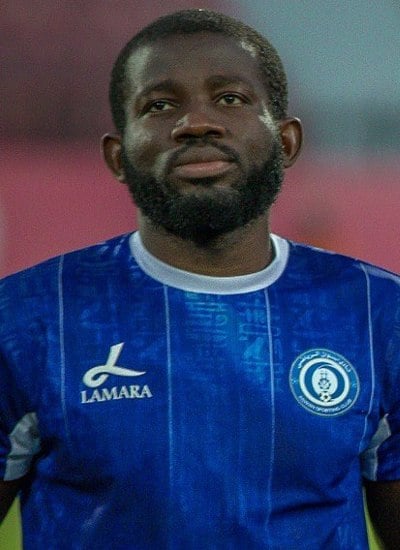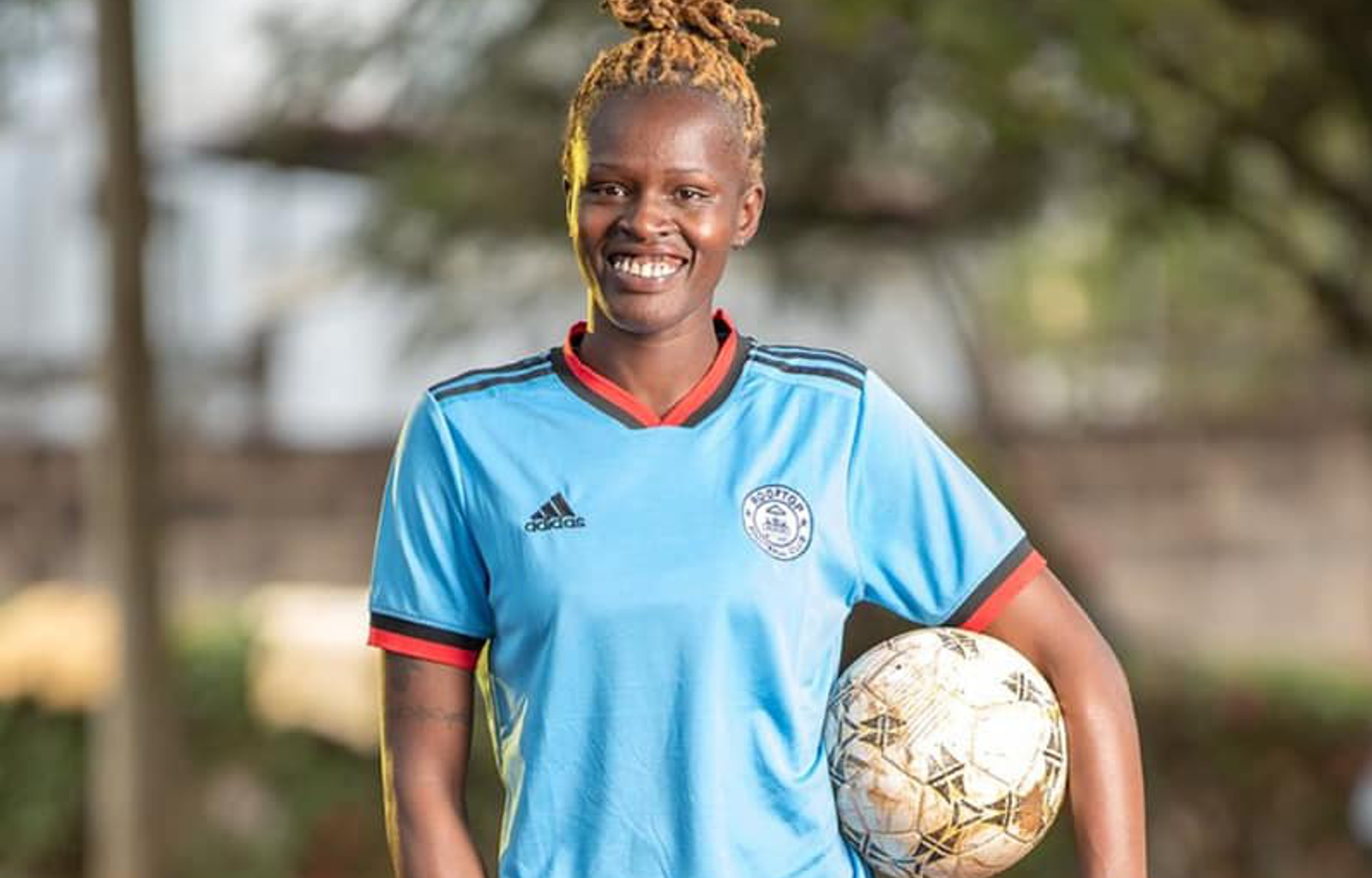
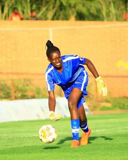
About
Samantha Akinyi
Kenyan international goalkeeper Samantha Akinyi (27) took some time away from football to study counselling and psychology with the help of the Kenya Footballers Welfare Association (KEFWA).
Becoming a goalkeeper was not a personal choice. I am tall, six foot two. At some point our goalkeeper was not available for a match. Locally in our community the tallest one goes in goal, so the coach told me to go in. That was in 2009. A year later, there were trials to send a team to the Norway Cup. My coach told me there were only two goalkeepers, but that three would go. So, I went to the trials as a goalkeeper and as there were only three of us, we were all allowed to go to Norway. It was a strategic move that worked. From then on, I stayed in goal.
When I started playing football, I saw it as a career. But at some point, I realised that I needed an alternative. When football doesn't provide, I need to have something that can provide for me. And when COVID happened, everything came to a stop in 2020. I thought: What if football doesn't come back? Before that, it was all about football, but after COVID I saw things differently. I told myself: Go back to school. The Kenya Footballers Welfare Association (KEFWA) had some educational programs. I applied and was accepted. They sorted out everything.
This showed me the importance of unions. There are so many challenges that we players go through in terms of registration, contracts, personal challenges, team challenges, and club challenges. Unions are very important. They are the ones that stand up and make players feel comfortable in their environment.
When I got accepted, I went to college and studied counselling and psychology. I decided on these two because as a footballer, I realised that football is not just about taking to the pitch and playing – it's also mental. Players struggle to find somebody to talk to when mental issues overwhelm them, and nothing seems to be working for them. I grew up in a slum and that was a challenge in itself. I went to study counselling and psychology; for the football fraternity in Kenya, for my fellow women, and for the community where I come from.

A lot of athletes are suffering from mental issues. Players see football as something that is going to elevate them to the height they want to achieve. And in many cases, unfortunately, it does not work – and the players suffer as a result.
When I started studying, I tried to balance football and education. But it proved difficult. I could not keep telling my lecturers that today I have a match, tomorrow I'm training. It got hectic for them. They told me I needed to make a decision either to be in class or to find an alternative to manage my time and study. So, I decided to stop playing for a while, finish my studies and then go back to playing.
There is no money in women’s football in Kenya. We play because we love the game. Sometimes when we play away, our club will give us some money for meals and at times they pay for transport home after a game. But we do not play for the money. It's the passion that drives us, it's nothing beyond passion. It's just that you try and keep fit, be in a club and hope that you can attract interest from outside the country.
There is a big gap between men and women. Men's football is given priority. Change will come, but it’s not going to happen soon. I can see some changes, such as women’s matches being televised. So, the change is there. It's coming, but it's slow. It's not something we can say is near; it's something that will happen as time goes by.
“The Kenya Footballers Welfare Association had some educational programs. I applied and was accepted. They sorted out everything.”
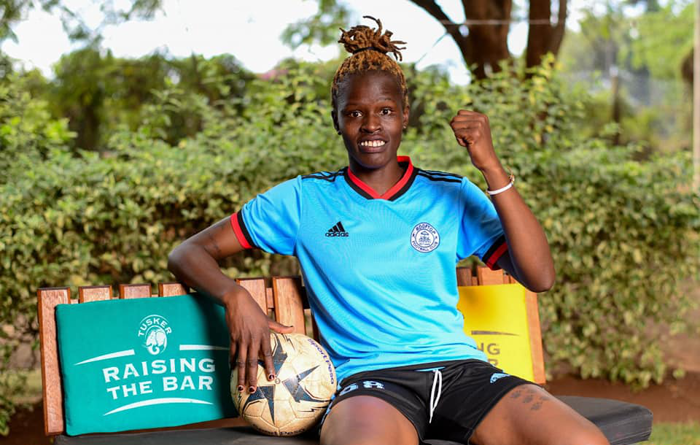
After studying, I got a job at the Moi Education Centre and I am working there as a sports counsellor, as well as a goalkeeper trainer. But I also decided to start playing football again. I opted to go to Tanzania, to a club called Tiger Queens. They are based in Arusha and only a five-hour trip away from my school. The school said I could go to Tanzania, as long as I am available to come back if needed. The club in Tanzania also knows the situation and have allowed me the freedom to be able to do both at the moment.
Soon after arriving in Arusha, there was an emergency at school. Parents wanted to pull a child out of football and the school wanted me to speak to the parents and explain the benefits of the child being in the team. He was a very good player. I had to travel back from Tanzania to Kenya because the matter could not be solved on the phone. But I managed to convince the parents, who decided to allow their child to continue playing with the team.

